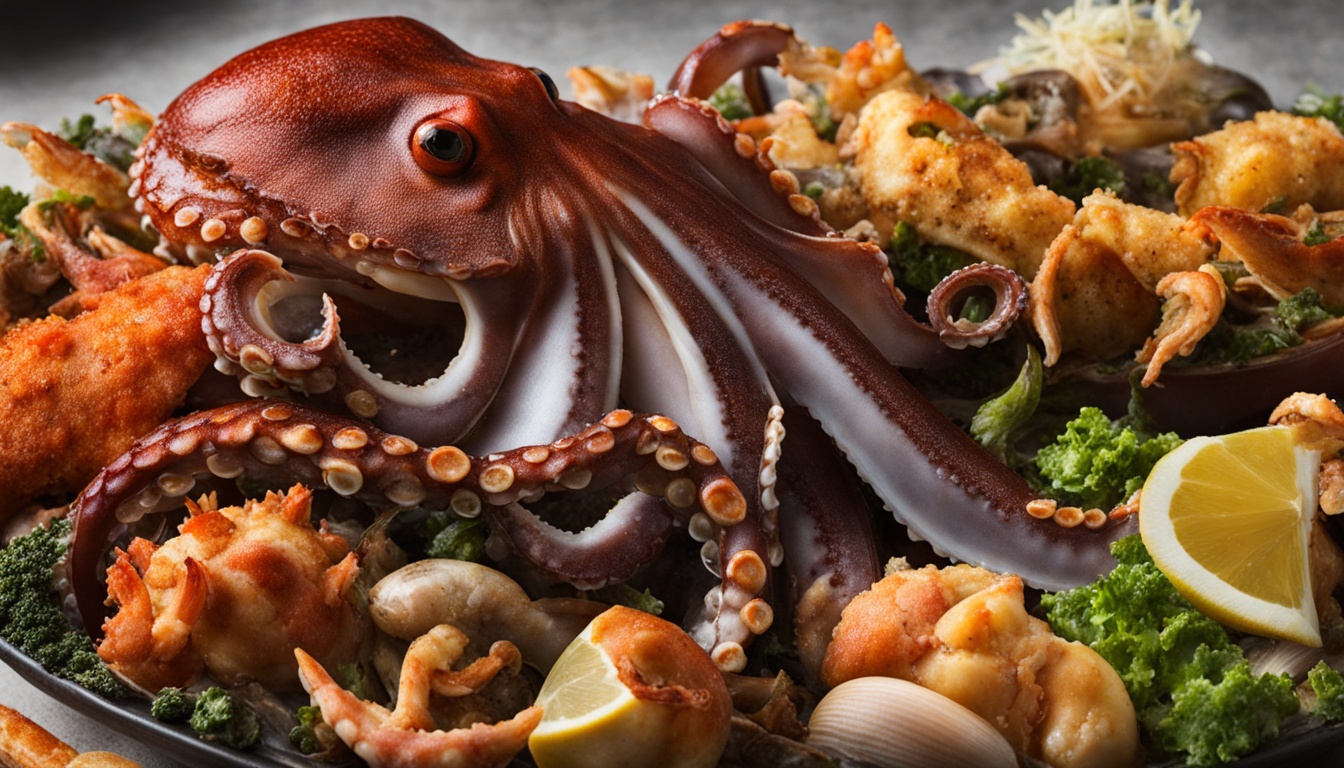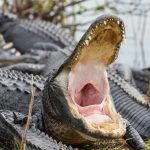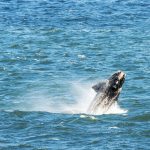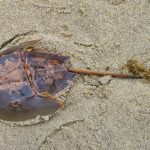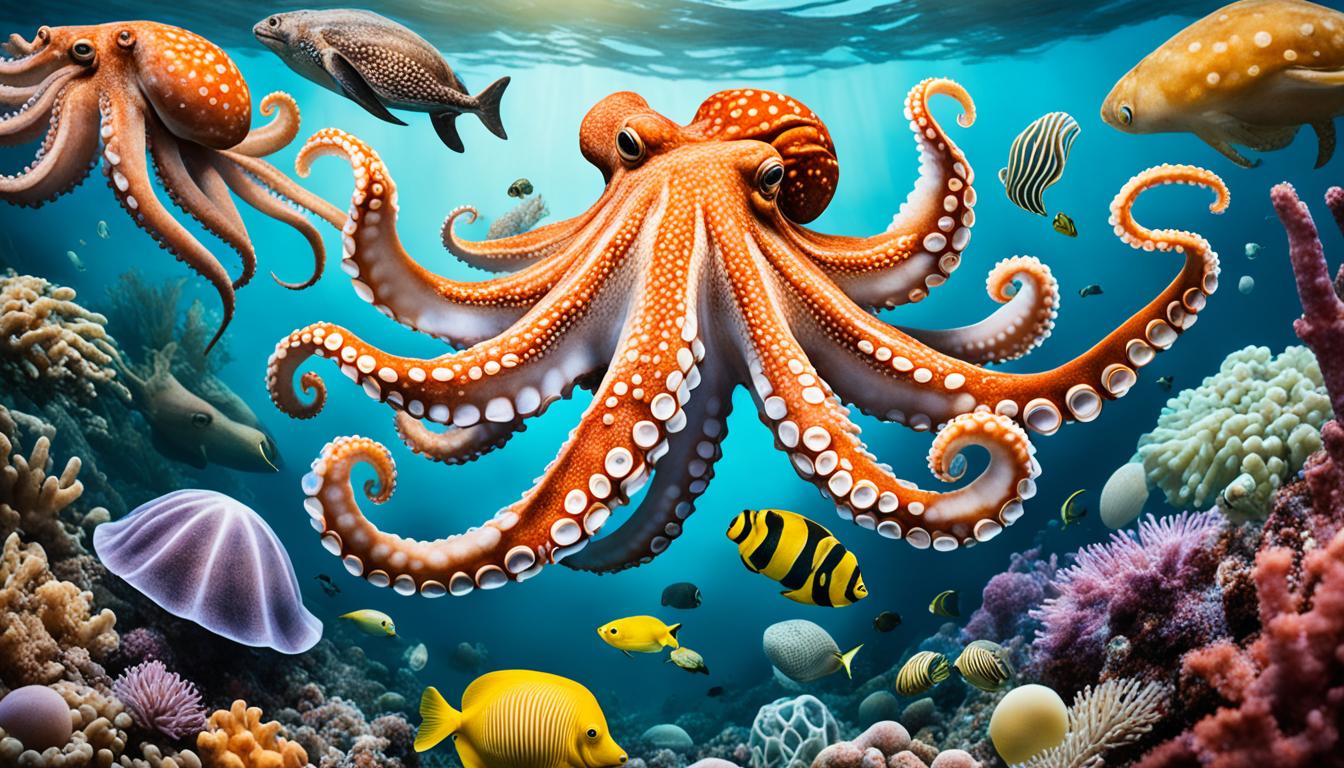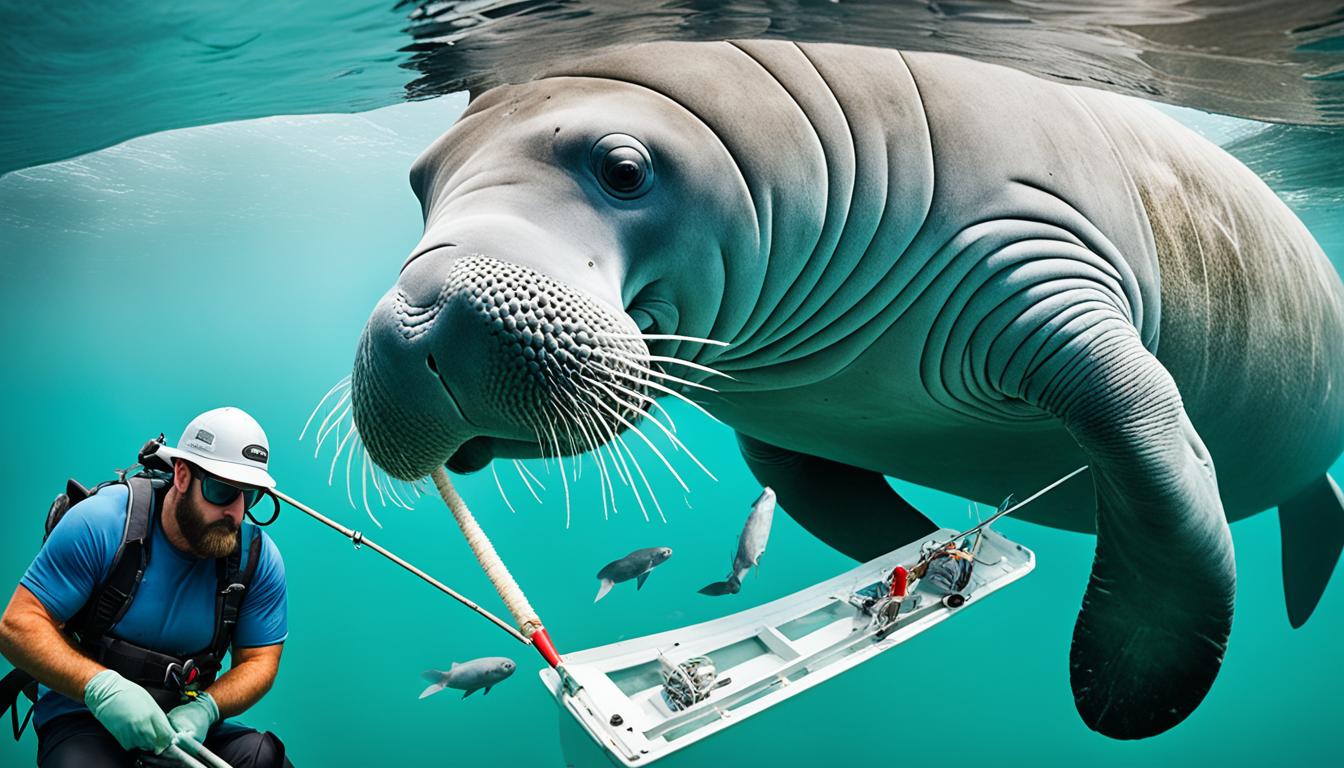Ever wondered what octopuses eat? These fascinating sea creatures are part of the cephalopod group, along with squids and cuttlefish. They are carnivores and enjoy a varied diet that includes crustaceans, mollusks, and small fish. With over 300 species, each octopus has its own food preferences shaped by its environment and what’s available to eat.
Octopuses have special beaks that help them catch and eat their food. They use a venomous bite to take down their prey. This shows how well they have adapted to their eating habits. Let’s explore more about their eating habits.
Understanding the Octopus Diet
The octopus diet is mostly meat-based, focusing on live prey. Octopuses have amazing ways to hunt and eat in different ocean areas. Learning about their diet shows how they interact with their ocean world.
Octopuses eat various things, depending on the type. Here are some common foods:
- Crabs
- Snails
- Clams
- Small fish
Some octopuses change what they eat based on what’s available in the season. Their eating habits are affected by:
- Water temperature
- How much food is around
- Other predators
Learning about octopus diets helps us understand their role in the ocean. It shows how they eat and their part in keeping the ocean balanced.
| Octopus Species | Common Prey | Feeding Strategy |
|---|---|---|
| Common Octopus | Crustaceans, Fish | Active Hunter |
| Giant Pacific Octopus | Crabs, Clams | Ambush Predator |
| Blue-ringed Octopus | Shrimps, Small Fish | Opportunistic Feeder |
What do octopuses eat?
Octopuses have a wide variety of foods they enjoy. They have unique eating habits that depend on where they live and what they are. Let’s look into what octopuses like to eat and how different species have different diets.
Common Prey Types
Octopuses eat many different things. Their favorite foods are:
- Crustaceans, such as crabs and shrimp
- Mollusks like clams and snails
- Small fishes
- Occasionally, other octopus species
Their strong beak lets them eat hard-shelled creatures. Yes, octopuses do eat fish, but they eat many other things too, based on where they live.
Variations by Species
Each type of octopus eats differently, which affects their diet. For example:
| Octopus Species | Primary Diet | Habitat |
|---|---|---|
| Giant Pacific Octopus | Crabs, small fishes, clams | Rich coastal waters |
| Blue-ringed Octopus | Small crustaceans, fishes | Shallow coral reefs |
Each octopus species has its own special diet, fitting to its home. This shows how diverse their eating habits are and the different places they live.
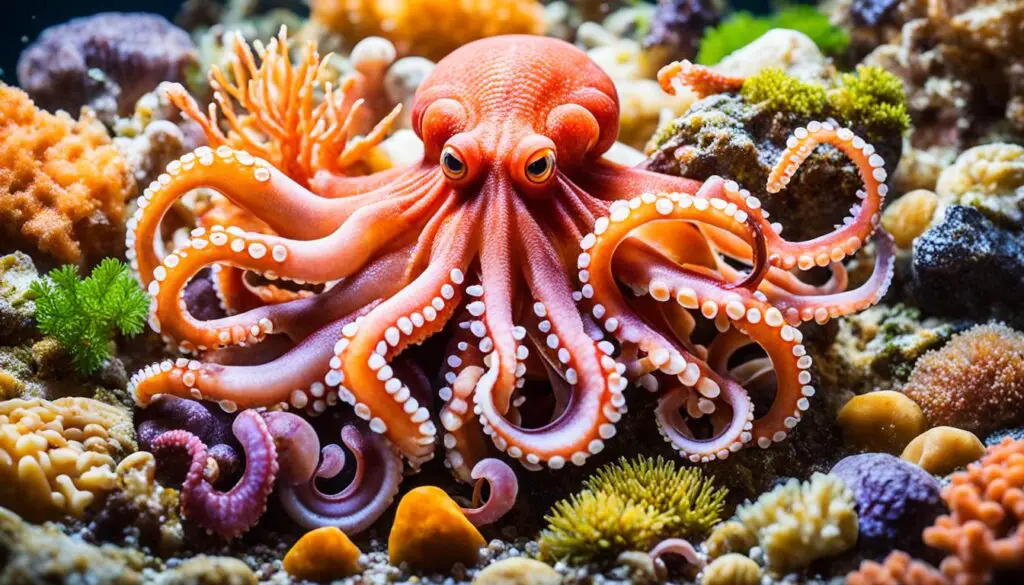
Feeding Habits of Different Octopus Species
Many octopus species have unique feeding habits of octopus species. They adapt their diets based on what they can find in their homes. The Giant Pacific Octopus and the Blue-ringed Octopus show how different octopuses eat in different ways.
Giant Pacific Octopus
The Giant Pacific Octopus is known for its size and complex Giant Pacific Octopus feeding habits. It lives in coastal and deep-sea areas. It eats crabs, small fishes, and sometimes even other octopuses.
It uses its strength and problem-solving skills to hunt. It hunts at night, using its sharp eyesight to find food in the dark. This makes it very good at catching prey during the night.
Blue-ringed Octopus
The Blue-ringed Octopus shows how some octopuses prefer certain foods. It eats hermit crabs, small shrimps, and fishes. It is small but venomous and can sneak up on its prey.
It uses venom to quickly paralyze its food. The Blue-ringed Octopus diet can change with the seasons. What food is available affects how it eats.
Hunting Strategies of Octopuses
Octopuses have amazing hunting strategies that show their smarts and flexibility. They use their unique body features to catch prey in different underwater places. They have great vision and suckers that feel like touch sensors. This helps them spot food from afar.
Octopuses sneak up on their prey quietly. They can change color and look like the ocean floor or coral reefs. This trick helps them catch prey before it can escape.
- Ambush tactics: Some octopuses wait still until prey gets too close.
- Active pursuit: Others chase their food with quick moves.
Octopuses also use venom to quickly knock out their prey. Their venom glands can paralyze small fish and crustaceans. This way, they can eat without much trouble. Their hunting ways show how well they fit into the ocean’s many worlds.
| Hunting Strategy | Description | Prey Targeted |
|---|---|---|
| Ambush | Octopus remains still, waiting for prey to come close. | Small fish, crustaceans |
| Active Pursuit | Octopus swims rapidly in search of food. | Fish, squid |
| Camouflage | Octopus blends with surroundings to remain undetected. | Various marine animals |
Learning about octopus hunting helps us understand their role in the ocean. They use smart tactics to survive and keep the ocean balanced.
Octopus Nutrition: What They Need to Survive
Proper nutrition is key for octopuses to live and thrive. They need a diet rich in protein from their natural prey. This diet is vital for getting amino acids, fatty acids, and minerals. These nutrients are crucial for their health and how their bodies work.
Octopuses have high metabolic rates and eat a lot every day. This helps them stay energetic, keep their immune systems strong, and reproduce well. Knowing about their diet shows how complex their eating habits are.
Good nutrition is important for octopus health and their role in the ocean. Healthy octopuses help keep their ecosystems in balance. By understanding their diet, we see how these animals are connected to our oceans.

